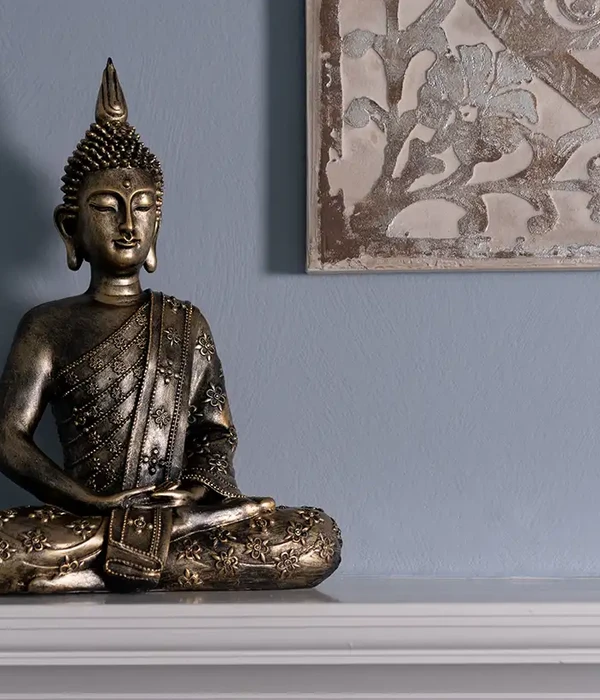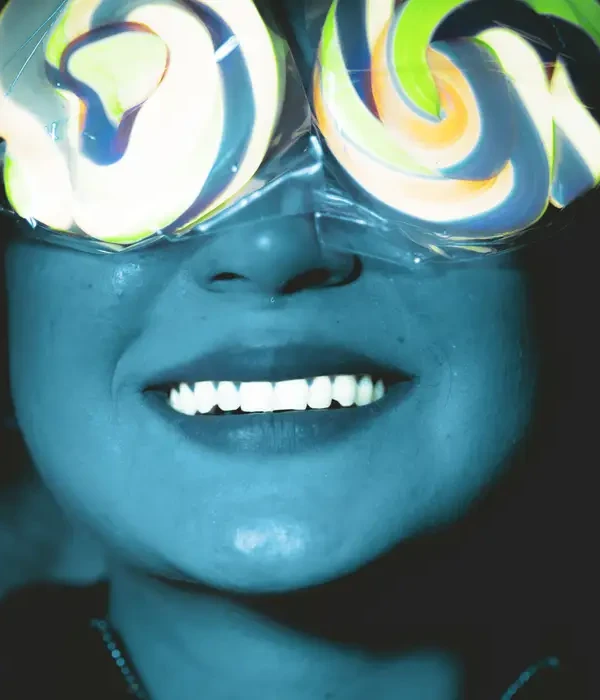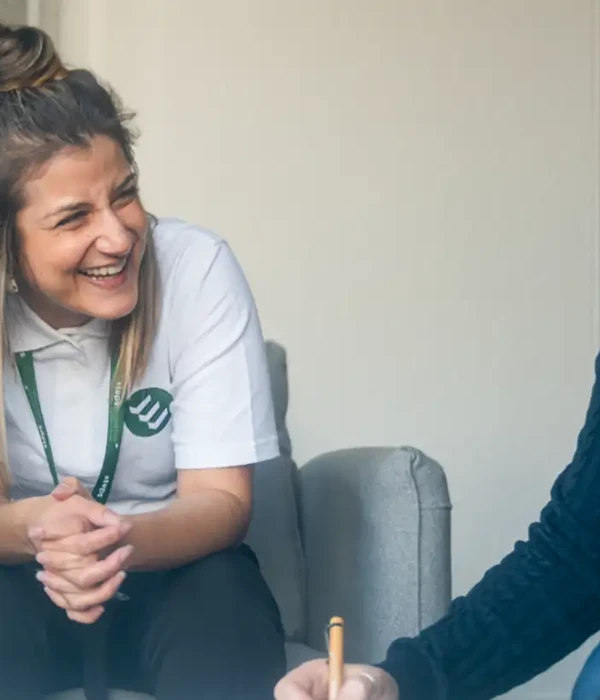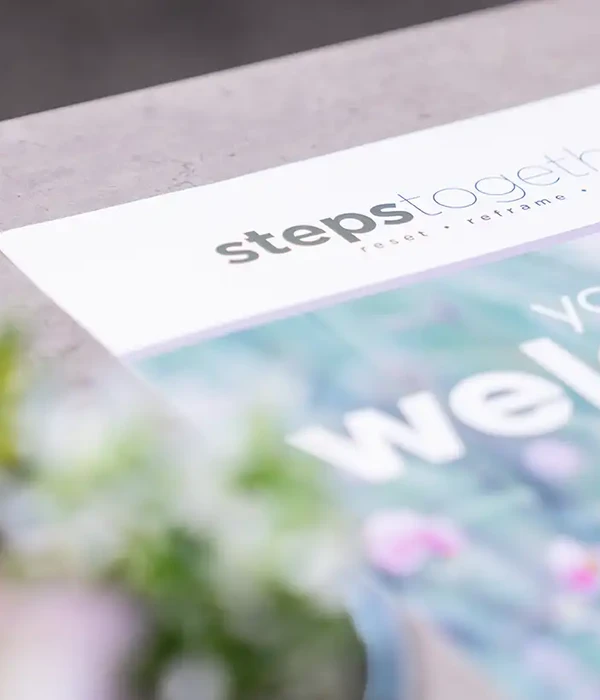Cocaine Addiction Treatment
Cocaine addiction treatment helps you break free from the cycle of drug use and build a healthier future. If you or someone you care about is struggling with cocaine addiction, it’s important to know that effective options exist.
Cocaine rehabilitation can involve a combination of talking therapies, support groups, and medical help, tailored to your needs. In many cases, a supervised drug detox is the first step, helping you manage withdrawal safely before beginning longer-term therapy. Support is available to guide you through your recovery process and help manage cravings and withdrawal effects.

Take the First Step Towards Recovery
Steps Together offers personalised support and proven treatments, providing the care, guidance and encouragement you need to move forward with confidence and build a healthier future.

Understanding Cocaine Addiction
Cocaine addiction is a pattern of using cocaine despite harm and difficulty stopping. This stimulant drug affects both the mind and body, leading to a strong need to keep taking it. When you develop a cocaine dependence, your body and mind both start to rely on the drug.
You may also develop a psychological dependence, which is when you crave cocaine and feel you cannot cope without it. Anxiety, depression, and agitation are common when not using the drug. You might start using cocaine to avoid feeling bored or sad.
Symptoms of Cocaine Addiction
The signs of cocaine addiction are often easy to spot if you know what to look for. You may notice sudden bursts of energy, talkativeness, and extreme confidence. People with cocaine addiction might show restlessness, irritability, or excitability.
Physical symptoms from the use of cocaine include dilated pupils, rapid heartbeat, and loss of appetite. Weight loss, nosebleeds (from snorting cocaine), and changes in sleep patterns are also common. Mood swings, paranoia, and inability to handle daily tasks are warning signs.


Tolerance and Withdrawal Symptoms
Tolerance means your body gets used to the drug, so you need higher doses to feel the same effects. This makes addiction worse, as you might use more cocaine than you first planned. When you stop using cocaine, you will likely feel withdrawal symptoms.
These symptoms can include tiredness, increased appetite, disturbed sleep, and strong cravings for the drug. You may experience low mood, anxiety, or irritability. Heavy cocaine abuse over time can lead to intense paranoia or feelings of hopelessness.
Effective Cocaine Addiction Treatment Approaches
Choosing the right treatment for cocaine addiction can make a big difference in your recovery. Each approach offers unique benefits, supports your physical safety, and gives ongoing care for both your body and mind.
Cocaine Detox
Detoxification is usually the first step in a cocaine addiction treatment programme. During detox, you stop using cocaine so your body can clear the drug naturally. This phase often brings withdrawal symptoms such as fatigue, anxiety, cravings, and sleep problems.
Ideally, you should undergo detoxification at a specialised facility or a hospital. Professionals at these centres will monitor your progress and your health. You may also get medications to ease withdrawal, but there is no standard detox medicine specifically for cocaine.
Outpatient Treatment
Outpatient treatment lets you live at home while attending therapy and support sessions several times a week. This approach works well if your cocaine dependence is less severe or you need to balance rehab with work and family life. Programmes may include one-to-one counselling, group therapy, and skills training.
Private cocaine rehab may offer more flexible scheduling, a higher staff-to-client ratio, and access to extra services like family counselling, family therapy or career support. These private options can be tailored to fit your lifestyle and recovery goals.
Residential Rehab
Inpatient and residential treatment provides an intensive environment where you can focus entirely on recovery and stay at the rehab centre 24 hours a day. Treatment for cocaine addiction may include individual therapy , group counselling, and behavioural therapies.
A typical day features a structured schedule, including therapy sessions, educational workshops, and activities that promote healthy living. Staff offer support at all times, making this a good option if you have a serious addiction or struggle to stay off cocaine alone.
Aftercare Services and Programmes
Aftercare is a vital part of maintaining your progress and sobriety after completing rehab treatment. These programmes provide ongoing support through regular therapy sessions, peer support groups, and 24/7 helplines. A structured aftercare plan may also include scheduled check-ins with a counsellor, relapse prevention education, and continued involvement in recovery communities.
Staying connected with support systems helps you manage triggers, cope with stress, and stay accountable. Aftercare bridges the gap between treatment and long-term recovery, reducing the risk of relapse.
Services that our multi-speciality addiction rehabilitation centres offer

Personalised Cocaine Recovery Planning
Getting help for cocaine addiction starts with careful assessment and an individual recovery plan. You will receive an evaluation that looks closely at your health, drug use, and any mental health conditions to make sure your treatment fits your needs. In some cases, this may involve a dual diagnosis, where both addiction and co-occurring mental health issues are treated together.
Personalising treatment will be important as not everyone will respond to treatment in the same way. As such, tailoring treatment to your specific needs will give you the best chance at recovery.
Initial Evaluation and Personalisation
Your first step is often an assessment with an addiction specialist. During this meeting, you will discuss your addiction to cocaine, physical and mental health, family, work, and any previous attempts at cocaine treatment.
After your evaluation, you will work with a team to develop a tailored treatment plan. This plan is tailored to your unique situation, goals, and the obstacles you may encounter during recovery. The plan often includes different types of therapy, support for social challenges, and planning for relapse prevention and long-term sobriety.

Long-Term Support and Treatment
Learning how to handle cravings and triggers is key to long-term sobriety. You might find it helpful to keep a cravings journal, noting your triggers and what helps you manage them. Certain coping skills, like practising mindfulness or breathing exercises, can reduce the impact of cravings.
Support groups for cocaine addiction offer a safe space to share experiences and challenges, get encouragement, and build a recovery network. Organisations like Cocaine Anonymous and Narcotics Anonymous are focused on peer support, accountability, and structured steps toward recovery. These groups can help reduce isolation and provide tools to manage cravings and prevent relapse.
Family support can play a vital role in recovering from cocaine addiction. Encouragement, understanding, and involvement in therapy can strengthen motivation and rebuild trust. Family members can also learn about addiction, set healthy boundaries, and provide emotional stability and practical help with day-to-day life, all of which help create a supportive environment for long-term recovery.
Therapeutic Interventions and Psychological Support
Addressing cocaine addiction often requires evidence-based therapy and structured support. Effective approaches involve a mixture of practical skills, personal reflection, and peer support to help you manage triggers and work towards long-term recovery.
Individual Therapy
With individual counselling or one-to-one therapy, you receive focused attention centred on your personal needs. These sessions give you a safe space to talk openly about your addiction, life challenges, and progress. Therapists may use motivational interviewing, which helps you find your reasons for change, boosting your motivation.
Private counselling allows for a more tailored approach, addressing underlying issues such as trauma, anxiety, or depression, all of which can play a role in addiction. Depending on your needs, these therapies can include evidence-based methods.
Behavioural Therapies
Behavioural therapies are highly effective for treating cocaine addiction. Cognitive behavioural therapy (CBT) helps individuals identify and change thought patterns that lead to drug use, while also teaching coping strategies and relapse prevention skills.
Motivational Interviewing (MI) can boost motivation and commitment to change. These therapies are often combined alongside other modalities in a comprehensive treatment plan to address both the psychological and behavioural aspects of cocaine addiction.
Group Therapy
Group therapy brings you together with others who are also working on recovery. Sessions might be led by a therapist or follow peer-led models like Cocaine Anonymous, Narcotics Anonymous, or 12-step recovery programmes. Talking to people who understand your situation can reduce feelings of isolation and increase accountability.
In group sessions, you will share experiences, learn coping strategies, and offer encouragement to others. Therapeutic groups provide structure, routine, and a sense of belonging, which can help you stay motivated. Group therapy may involve role-plays, real-life problem solving, or learning new skills in a supportive setting.

Cocaine Rehab Can Help You
Cocaine can be a dangerous drug. The mental and physical effects of cocaine use can be devastating. In the worst instances of addiction, some people may suffer from a cocaine overdose and use more than their bodies can handle. Recovery from cocaine addiction may feel impossible at times.
But with proper cocaine addiction treatment, you or your loved one can recover and build a healthy life free from cocaine. At Steps Together, we’ll offer you professional cocaine rehab treatment that combines evidence-based therapies with holistic approaches to support your overall well-being and long-term recovery.
Frequently Asked Questions
What treatment options are available for managing cocaine dependence?
You can access a range of professional treatment options, including individual counselling, cognitive-behavioural therapy (CBT), group therapy , and medication when needed. Your personal support and treatment plan are tailored after a full assessment of your needs.
Can group therapy contribute to recovery from cocaine use disorder?
Group therapy offers support from others struggling with addiction. Sharing your experiences helps you feel less isolated and keeps you motivated. Many people find peer feedback and encouragement to be very helpful in maintaining their sobriety.
How does the 12-step programme aid in treating cocaine dependency?
The 12-step programme gives you a structured pathway to recovery with clear steps and social support. By attending 12-step groups, you connect with others in recovery, learn coping strategies, and remain accountable.
How effective is cognitive-behavioural therapy in treating cocaine addiction?
Cognitive-behavioural therapy helps you identify risky thoughts and avoid triggers. It is one of the most effective options available for cocaine addiction. CBT gives you strategies to manage cravings and change behaviour patterns tied to your drug use.
What role does detoxification play in cocaine addiction recovery?
Detoxification is the first step in a drug rehab programme . It involves clearing cocaine from your system. While detox helps manage physical withdrawal, it is not a complete treatment. Long-term recovery usually includes other options like therapy or support groups after detox.
Is it possible to overcome cocaine addiction without professional intervention?
Some people try to quit cocaine on their own. While a few succeed, most people have better outcomes with professional help, such as therapy or support groups. Professional support increases your chances of long-term recovery and lowers the risk of relapse.





